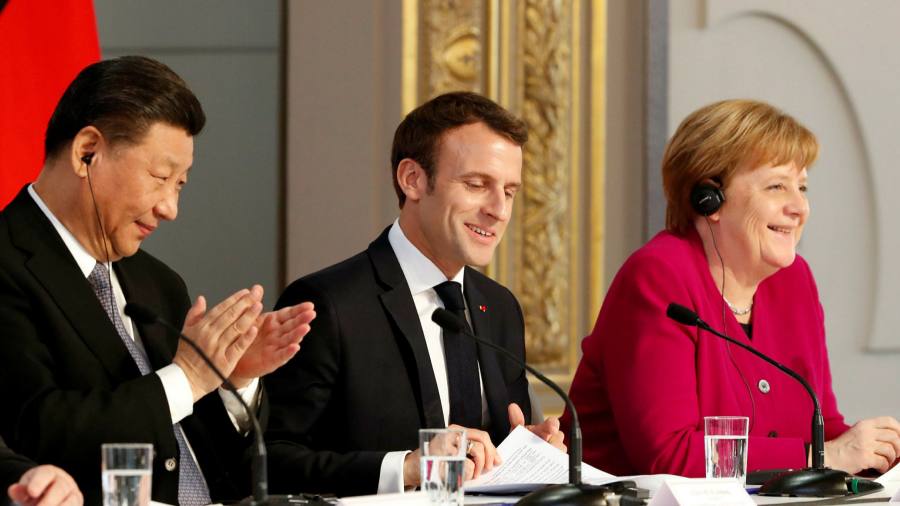[ad_1]
Co-ordinated western sanctions imposed this week on a small number of Chinese officials for their role in human rights abuses in Xinjiang are welcome if overdue. The mass imprisonment of Uyghur Muslims in the north-western region in the name of fighting terrorism is a moral outrage. What looks like a multipronged campaign by Beijing to eradicate a whole culture — outlawing displays of religious observance, intrusive surveillance and even forced sterilisation — demanded unambiguous repudiation by democratic powers.
The US took action last year, placing sanctions on dozens of companies for their alleged involvement in Uyghur repression. Last week, it imposed penalties against two-dozen Chinese and Hong Kong officials for undermining that territory’s autonomy. On Monday the US, EU, UK and Canada together imposed asset freezes and travel bans on four officials and a security organisation implicated in the persecution and internment of Uyghurs. The retribution is modest given the crimes. But for the first time since the Tiananmen Square protests were crushed in 1989, western governments have taken co-ordinated action to punish human rights abuses in China.
The move could presage further western co-ordination now that US president Joe Biden has re-embraced multilateralism. In Brussels on Wednesday, US secretary of state Antony Blinken will seek to reboot the US-EU China dialogue, a transatlantic forum for meshing European and American policies towards an increasingly assertive China. The dialogue was set up by Donald Trump but rendered pointless by his unilateralism.
The EU’s contribution was particularly important. It was the first to announce Xinjiang sanctions — using its new Magnitsky Act-style powers — and the first to taste the wrath of Beijing. Three months ago, the European Commission was vaunting the business benefits of a deal on investment protection and market opening it had struck with China despite the misgivings of the Biden team. That agreement is now in deep trouble.
China retaliated against EU sanctions by punishing several parliamentarians, analysts, and Merics, a think-tank on China based in Berlin known for its judicious analysis. It also targeted the committee of 27 member-state ambassadors to the EU who oversee foreign and security policy. Beijing has in recent years used a divide-and-conquer approach with national capitals to undermine a common EU front. With its Xinjiang abuses and overreaction on sanctions, Beijing has managed the rare feat of uniting the EU on a foreign policy issue.
By targeting critics of its actions and analysts who refuse to toe its line, Beijing has demonstrated its totalitarian mindset. By punishing European Parliament members, it has made it all but impossible for that legislature to ratify the investment agreement. MEPs were already clamouring for more concessions from Beijing, namely the adoption of international standards outlawing forced labour. China will need to make a double retreat to put the deal back on track, which seems unlikely. Having used the investment deal to drive a monetary wedge between Washington and Brussels, Beijing may feel it can dispense with it.
The EU still has deep concerns about being pulled into an all-out confrontation with China alongside the US. European and American interests on trade and technological standards will inevitably clash. The EU also wants to leave space for co-operation and fair competition. Aligning with Washington and other capitals on human rights is to be applauded but Brussels must accept that China will punish it in return.
[ad_2]
Source link





